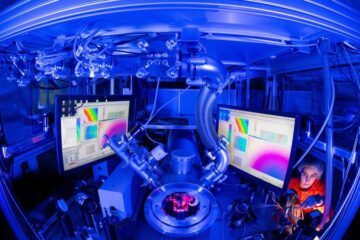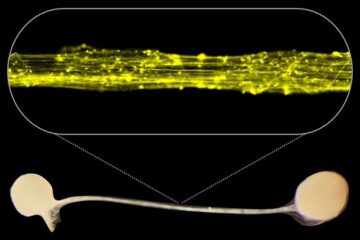Scientists a Step Closer to Developing Renewable Propane

The University of Manchester A gas burner
This study provides new insight and understanding of the development of next-generation biofuels. In this latest study, published in the journal Biotechnology for Biofuels, scientists at the University’s Manchester Institute of Biotechnology (MIB), working with colleagues at Imperial College and University of Turku, have created a synthetic pathway for biosynthesis of the gas propane. Their work brings scientists one step closer to the commercial production of renewable propane, a vital development as fossil fuels continue to dwindle.
Professor Nigel Scrutton, Director of the MIB, explains the significance of their work: “The chemical industry is undergoing a major transformation as a consequence of unstable energy costs, limited natural resources and climate change. Efforts to find cleaner, more sustainable forms of energy as well as using biotechnology techniques to produce synthetic chemicals are currently being developed at The University of Manchester.”
Natural metabolic pathways for the renewable biosynthesis of propane do not exist but scientists at the University have developed an alternative microbial biosynthetic pathway to produce renewable propane.
The team led by Nigel Scrutton and Dr Patrik Jones from Imperial College, modified existing fermentative butanol pathways using an engineered enzyme variant to redirect the microbial pathway to produce propane as opposed to butanol. The team was able to achieve propane biosynthesis creating a platform for next-generation microbial propane production.
Propane has very good physicochemical properties which allow it to be stored and transported in a compressed liquid form. While under ambient conditions it is a clean-burning gas, with existing global markets and infrastructure for storage, distribution and utilization in a wide range of applications ranging from heating to transport fuel. Consequently, propane is an attractive target product in research aimed at developing new renewable alternatives to complement currently used petroleum-derived fuels.
Professor Scrutton comments: “This study focused on the construction and evaluation of alternative microbial biosynthetic pathways for the production of renewable propane. It also expands the metabolic toolbox for renewable propane production, providing new insight and understanding of the development of next-generation biofuels which one day could lead to commercial production.”
Contact Information
Jamie Brown
Media Relations Officer
jamie.brown@manchester.ac.uk
Phone: +44 (0)161 275 8383
Media Contact
More Information:
http://www.manchester.ac.ukAll latest news from the category: Power and Electrical Engineering
This topic covers issues related to energy generation, conversion, transportation and consumption and how the industry is addressing the challenge of energy efficiency in general.
innovations-report provides in-depth and informative reports and articles on subjects ranging from wind energy, fuel cell technology, solar energy, geothermal energy, petroleum, gas, nuclear engineering, alternative energy and energy efficiency to fusion, hydrogen and superconductor technologies.
Newest articles

Caution, hot surface!
An international research team from the University of Jena and the Helmholtz Institute Jena are demystifying the mechanisms by which high-intensity laser pulses produce plasma on the surface of solids….

Exploring the Asteroid Apophis With Small Satellites
In five years’ time, a large asteroid will fly very close to Earth – a unique opportunity to study it. Concepts for a national German small satellite mission are being…

First model of the brain’s information highways developed
Our human brain is not only bigger and contains more neurons than the brains of other species, but it is also connected in a special pattern: Thick bundles of neurons…





















